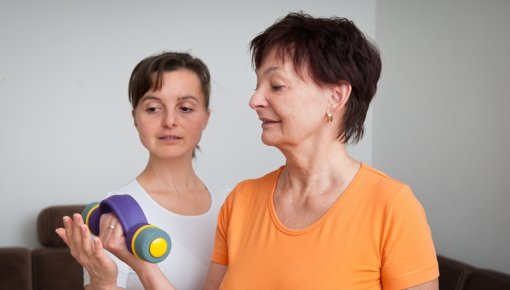Björk M, Dragioti E, Alexandersson H et al. Inflammatory Arthritis and the Effect of Physical Activity on Quality of Life and Self-Reported Function: A Systematic Review and Meta-Analysis. Arthritis Care Res (Hoboken) 2022; 74(1): 31-43.
Cramp F, Hewlett S, Almeida C et al. Non-pharmacological interventions for fatigue in rheumatoid arthritis. Cochrane Database Syst Rev 2013; (8): CD008322.
Dures E, Kitchen K, Almeida C et al. "They didn't tell us, they made us work it out ourselves": patient perspectives of a cognitive-behavioral program for rheumatoid arthritis fatigue. Arthritis Care Res (Hoboken) 2012; 64(4): 494-501.
Hewlett S, Cockshott Z, Byron M et al. Patients' perceptions of fatigue in rheumatoid arthritis: overwhelming, uncontrollable, ignored. Arthritis Rheum 2005; 53(5): 697-702.
Nikolaus S, Bode C, Taal E et al. New insights into the experience of fatigue among patients with rheumatoid arthritis: a qualitative study. Ann Rheum Dis 2010; 69(5): 895-897.
Repping-Wuts H, Uitterhoeve R, van Riel P et al. Fatigue as experienced by patients with rheumatoid arthritis (RA): a qualitative study. Int J Nurs Stud 2008; 45(7): 995-1002.
IQWiG health information is written with the aim of helping people understand the advantages and disadvantages of the main treatment options and health care services.
Because IQWiG is a German institute, some of the information provided here is specific to the German health care system. The suitability of any of the described options in an individual case can be determined by talking to a doctor. informedhealth.org can provide support for talks with doctors and other medical professionals, but cannot replace them. We do not offer individual consultations.
Our information is based on the results of good-quality studies. It is written by a team of health care professionals, scientists and editors, and reviewed by external experts. You can find a detailed description of how our health information is produced and updated in our methods.


